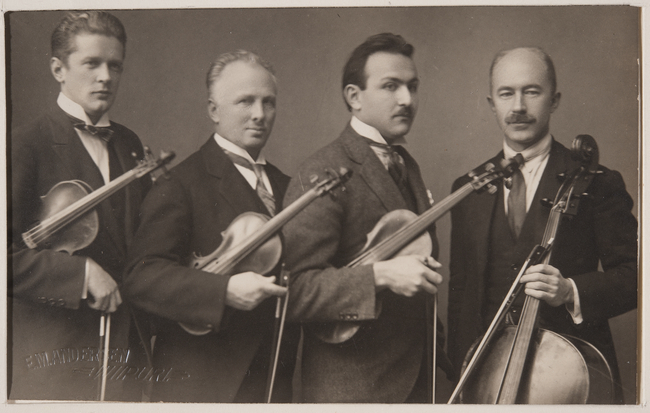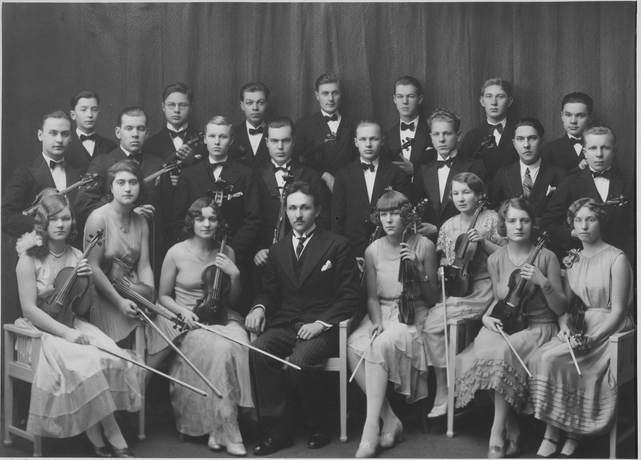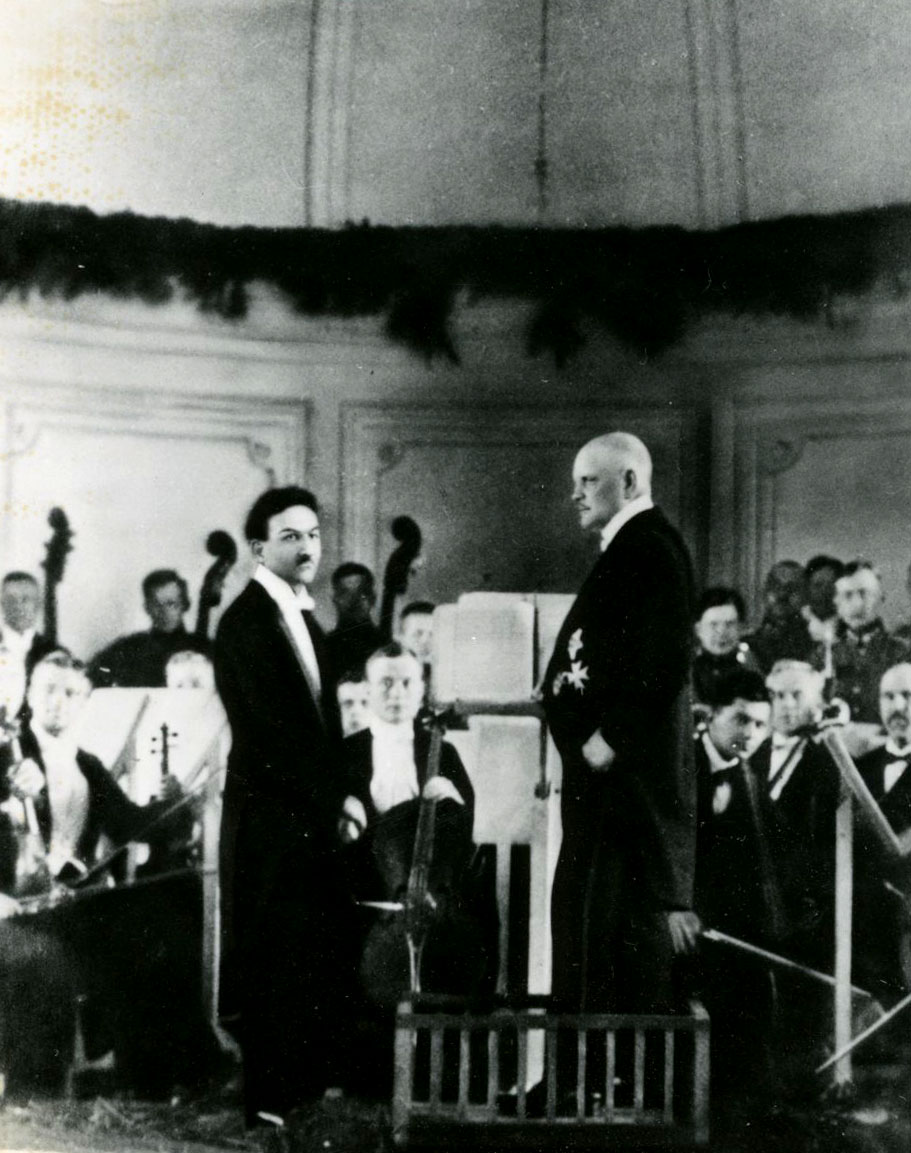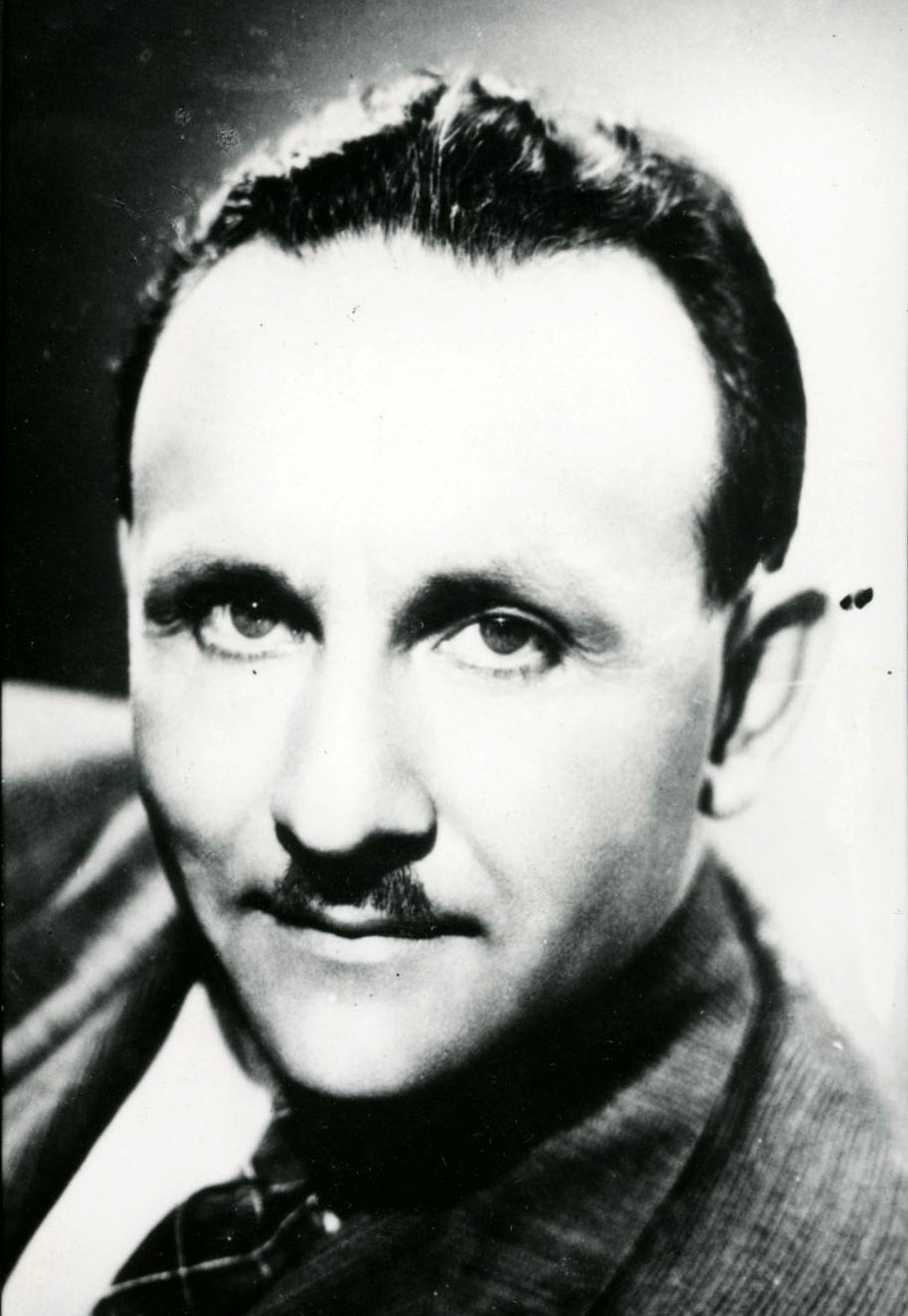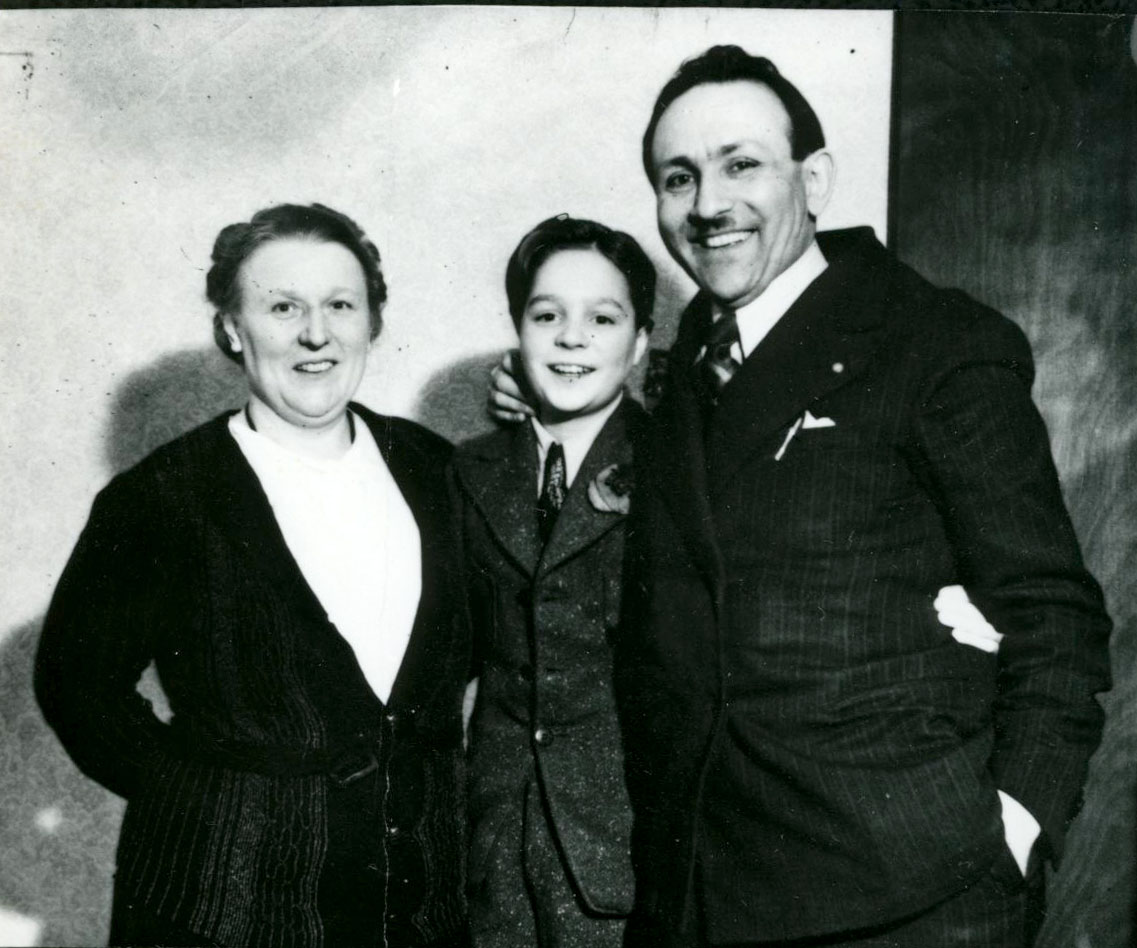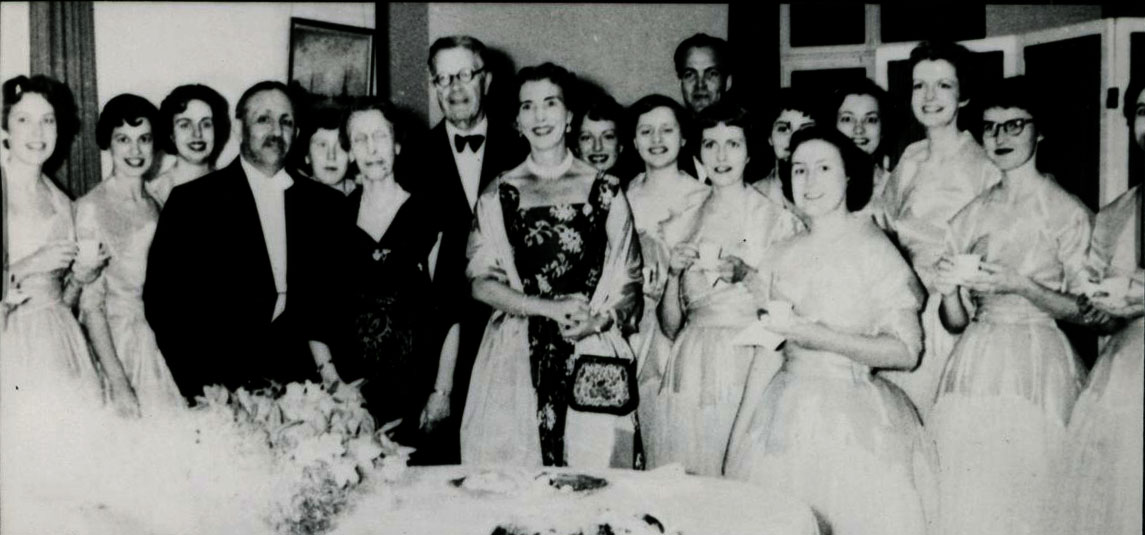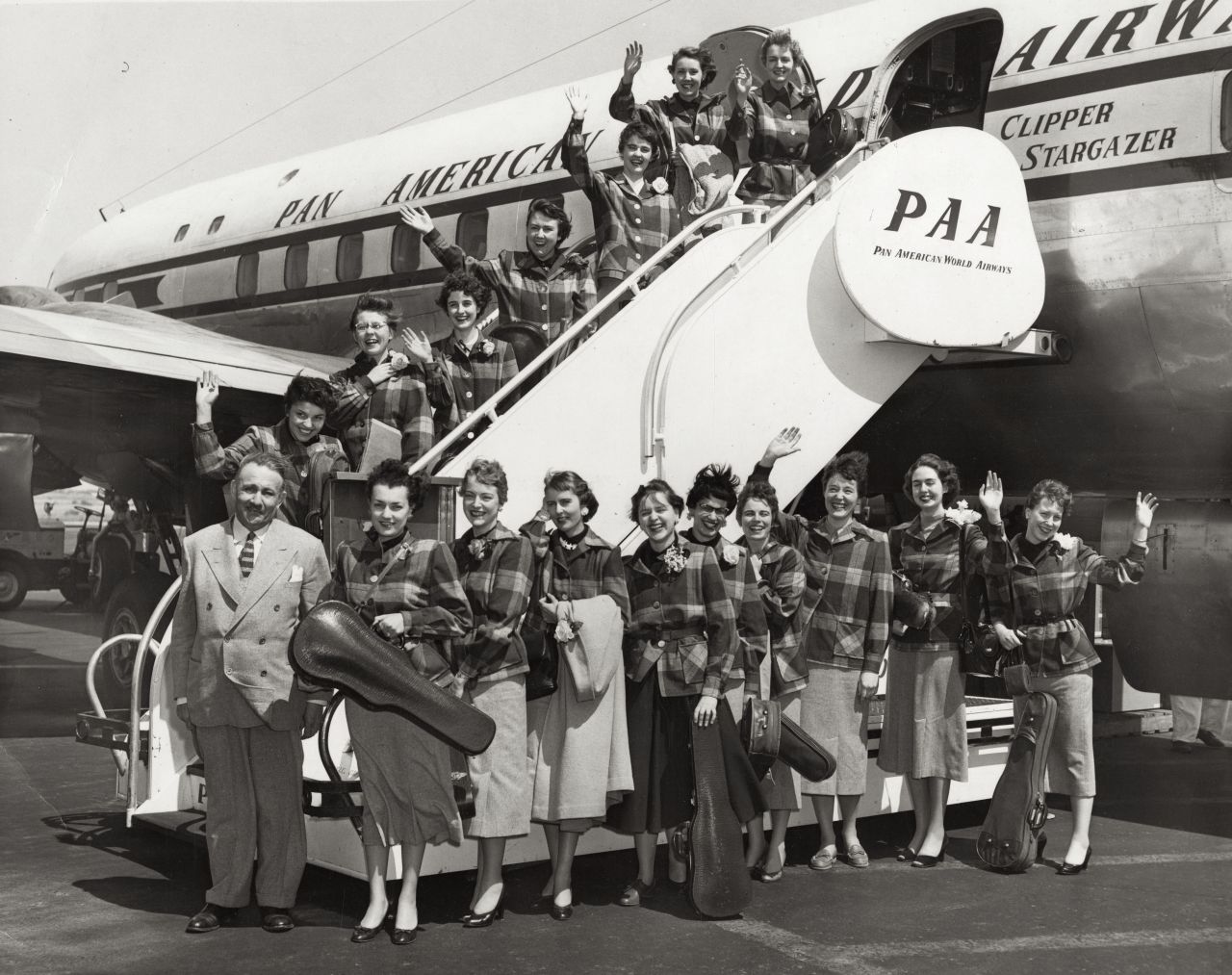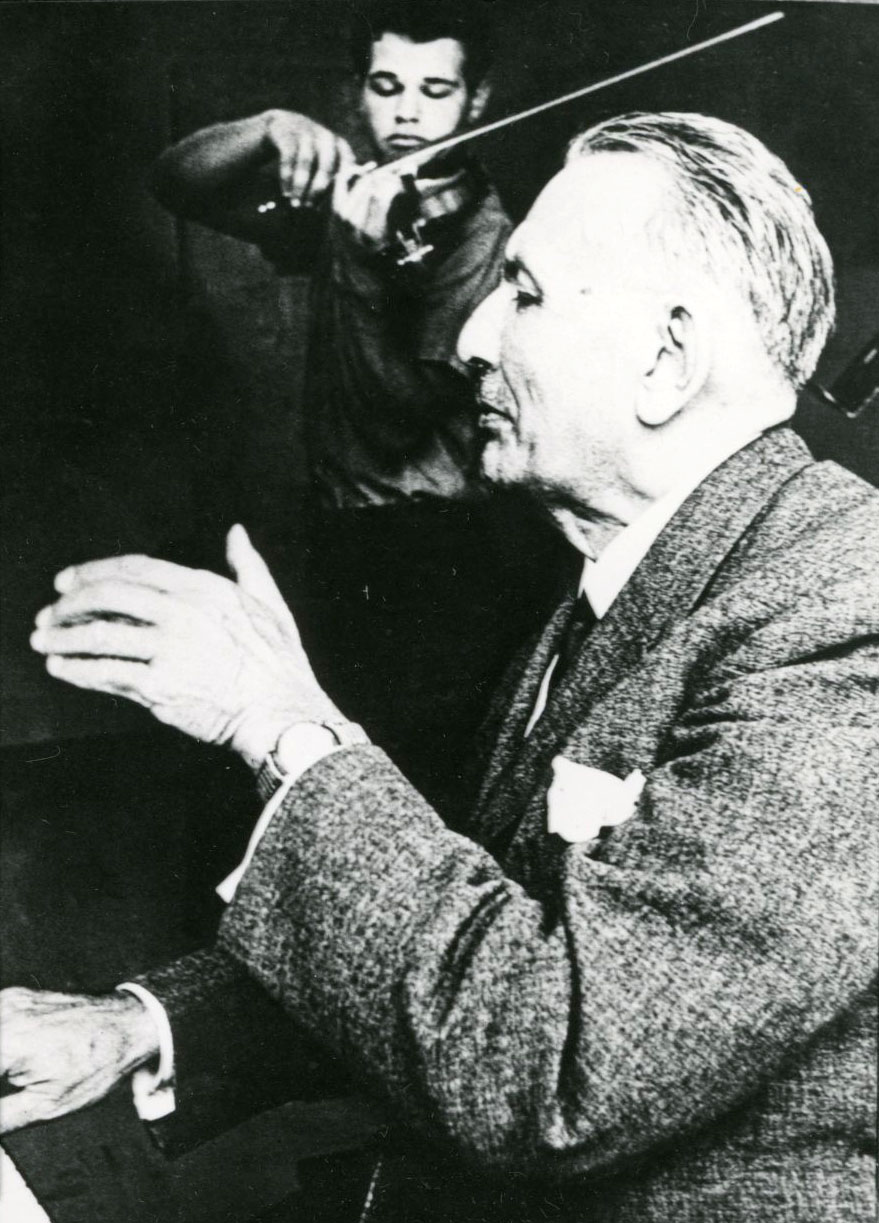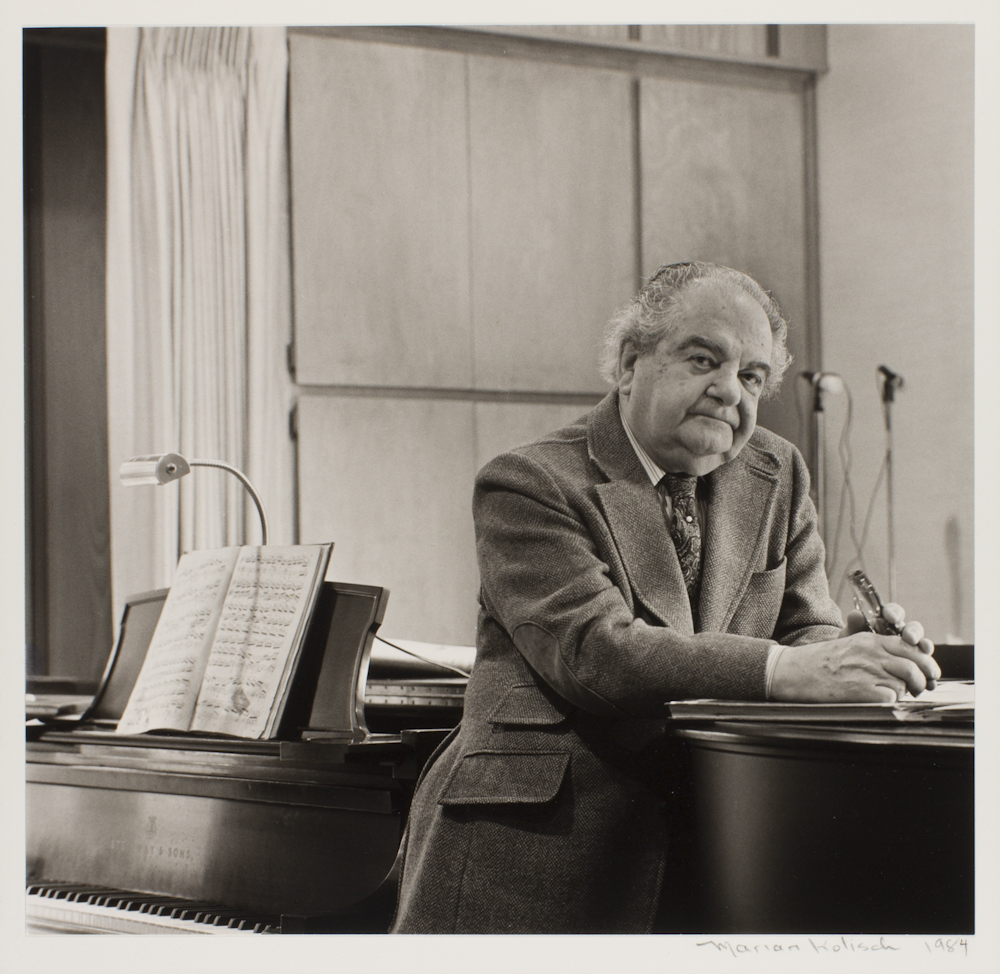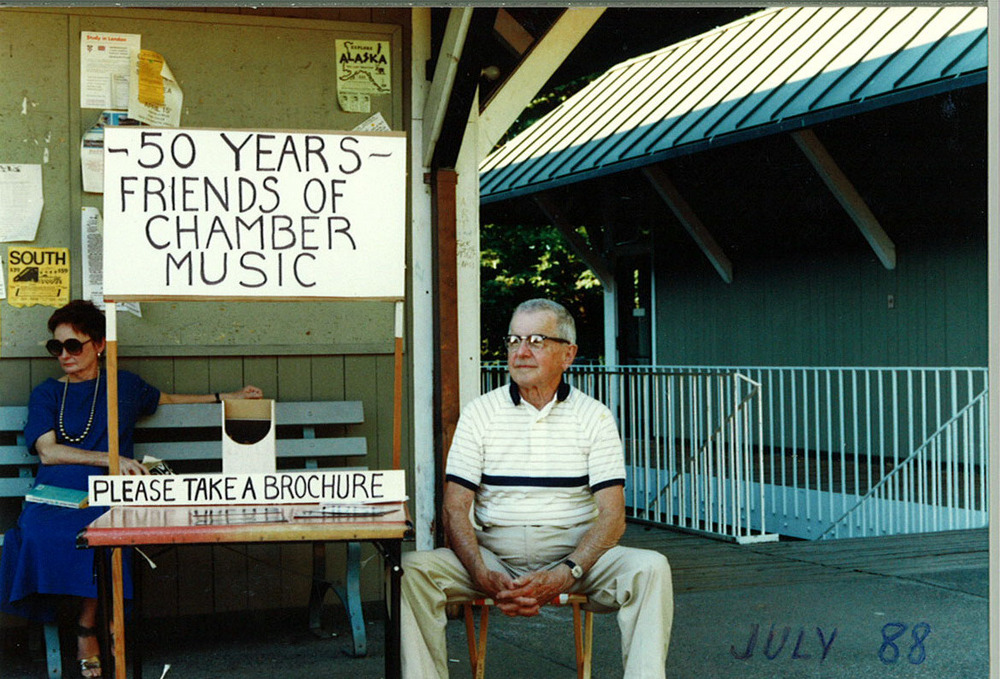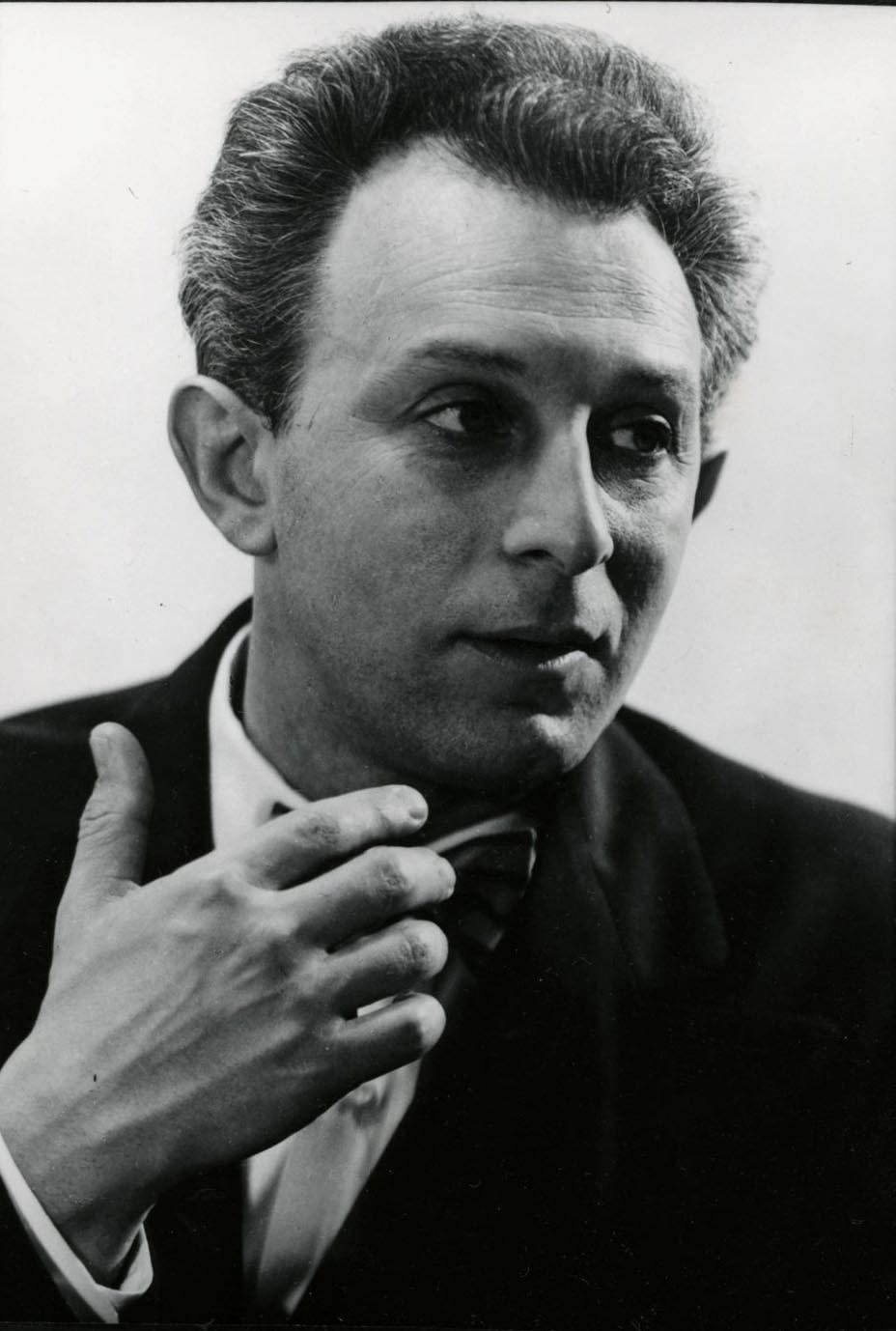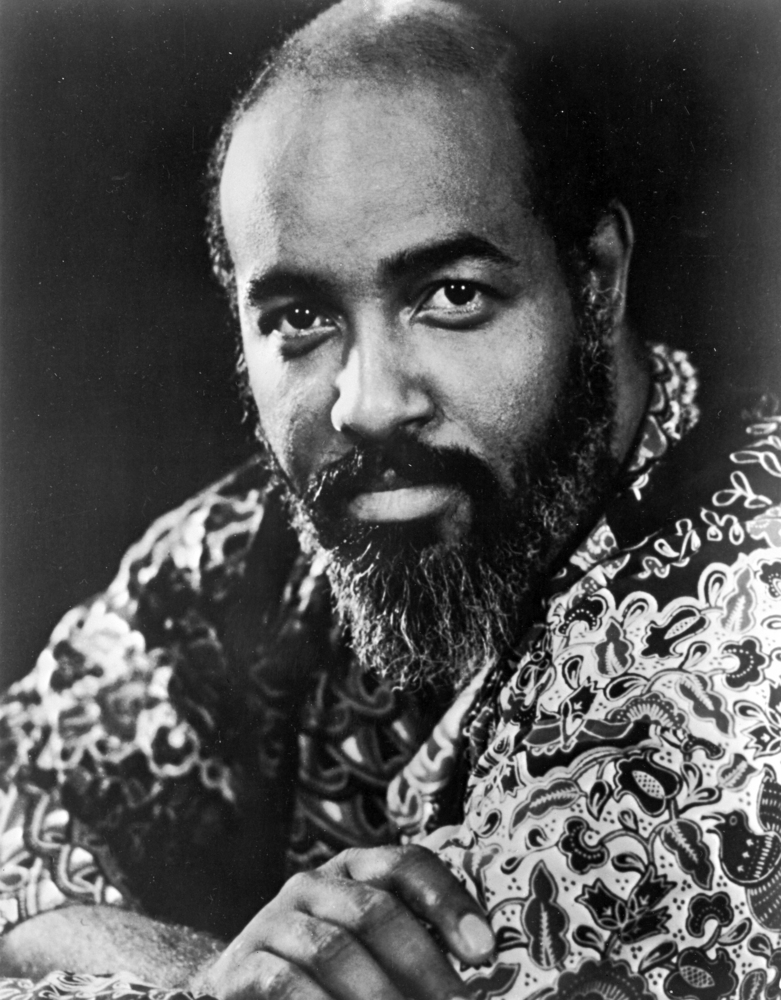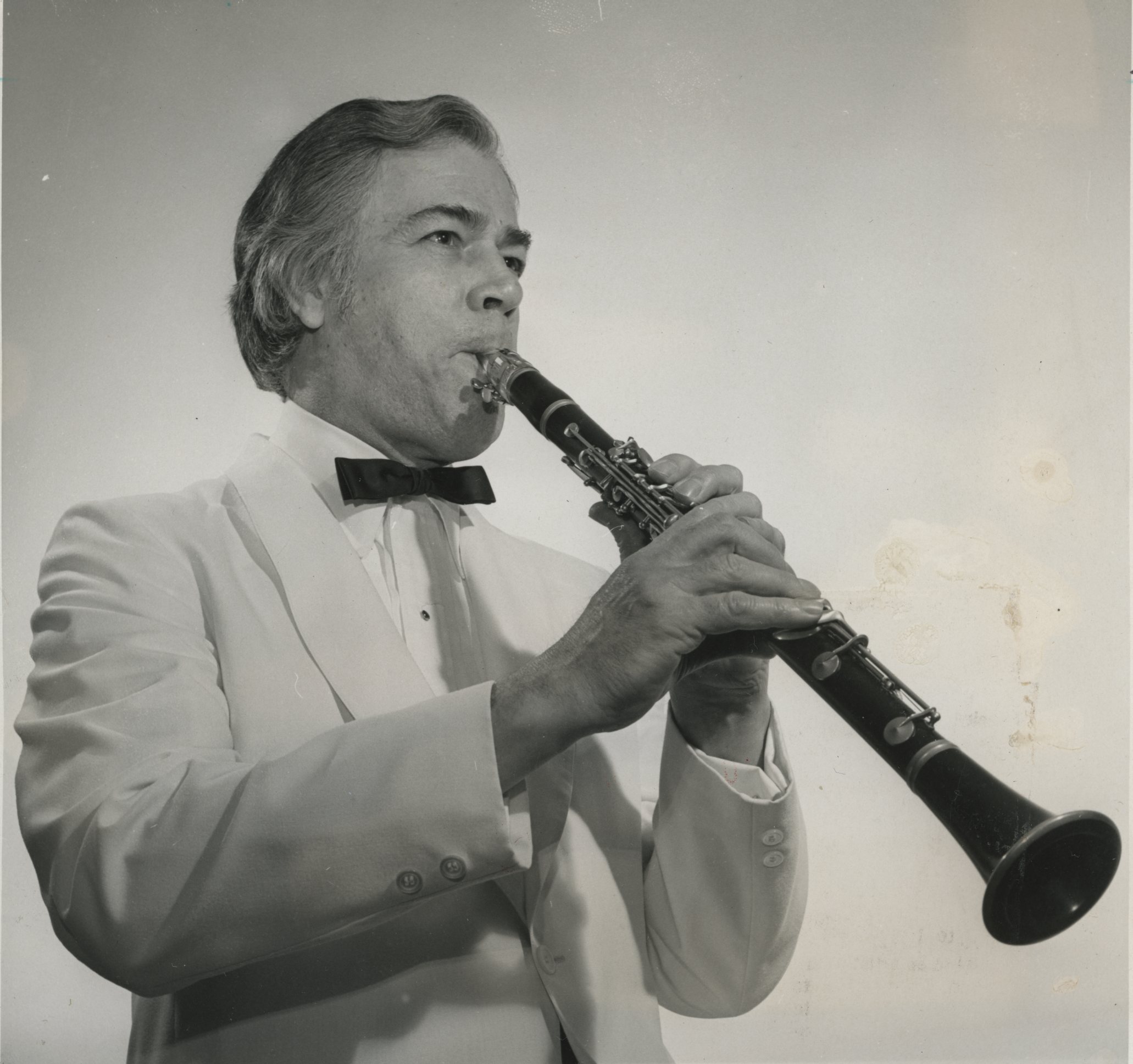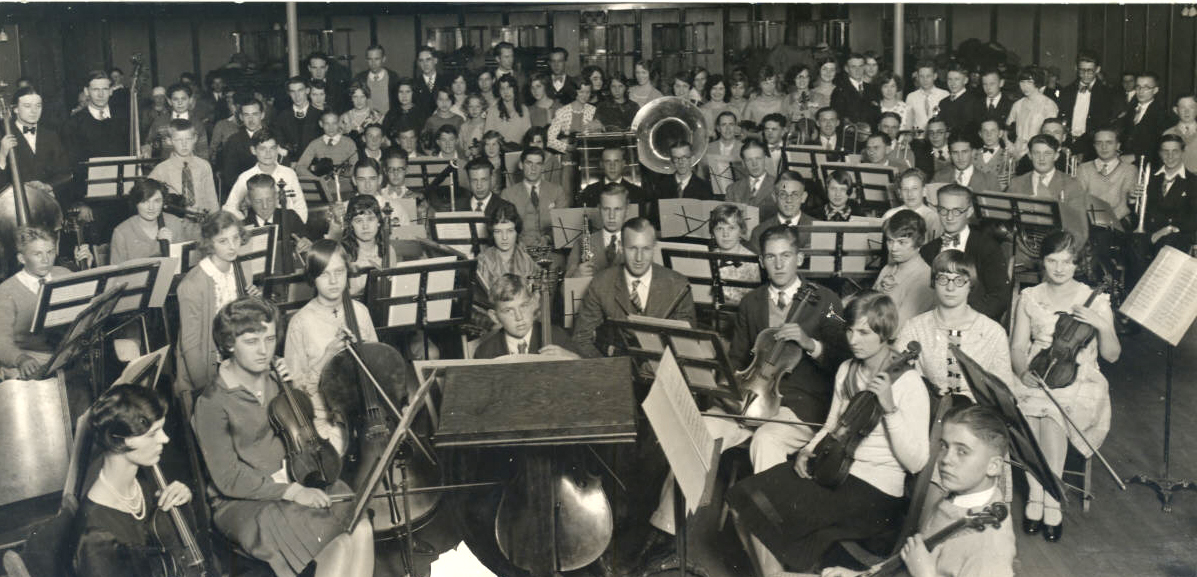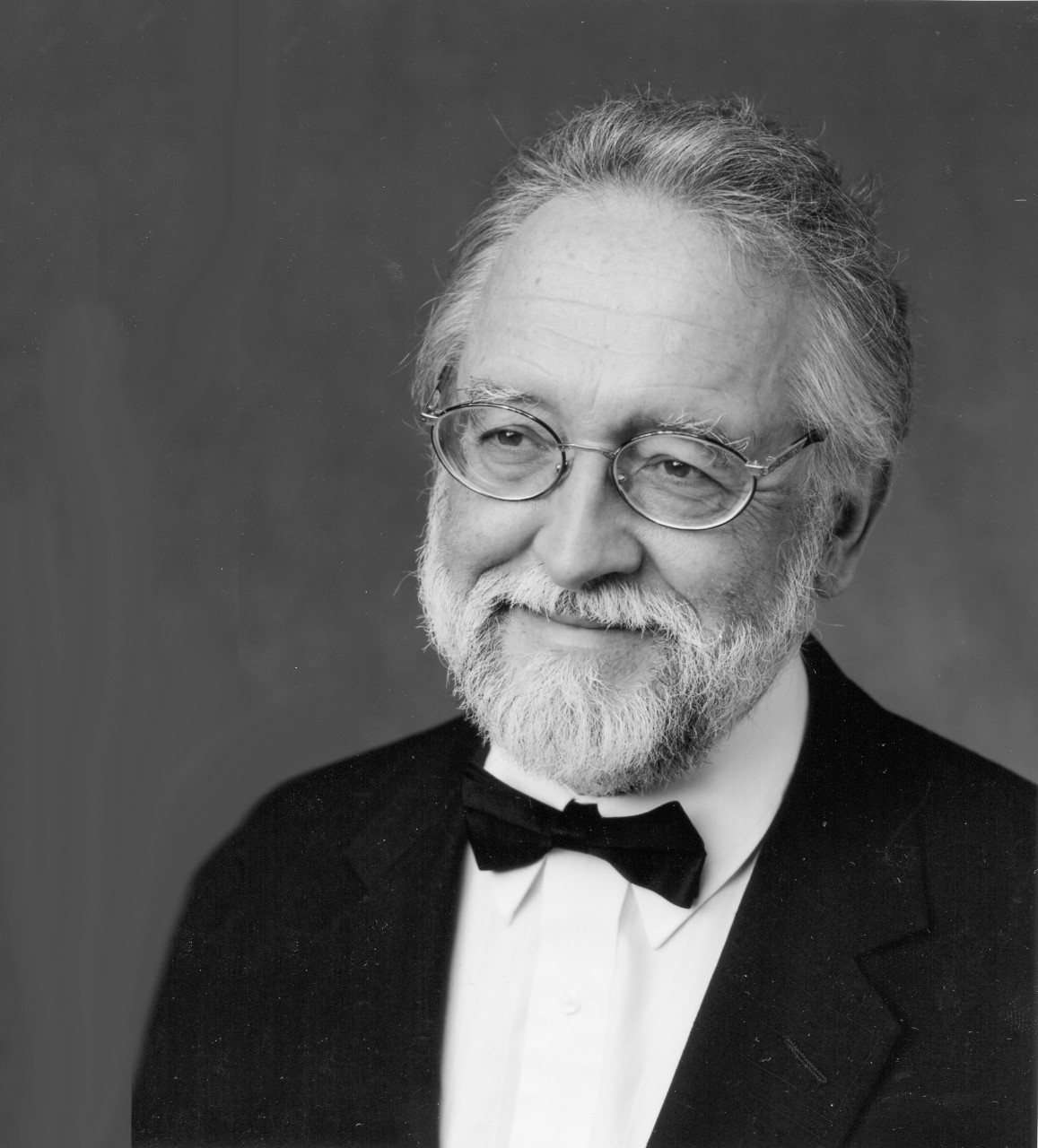Violinist, teacher, composer, and conductor Boris Sirpo was best known as the founder of the Portland Chamber Orchestra, which he directed for twenty years. He also taught stringed instruments at Marylhurst College and Lewis & Clark College, inspired and directed the Hood River Music Festival, led The Little Chamber Orchestra of Portland on two European tours, and gave private violin lessons in Portland and Hood River.
Sirpo was born Boris Osipovich Kaufman on April 3, 1893, in Vladikavkaz, North Ossetia, in the Caucasus in southwestern Russia. As a boy, he studied violin and orchestral conducting in Moscow and St. Petersburg. He continued his musical studies in the Berlin Musikhochschule under Georg Kulenkampff, in the Prague and Vienna Conservatories under Otakar Ševčík, and in the Basel Conservatory under Felix Weingartner. When he began his professional career in 1912 as a violinist with the Helsinki Philharmonic Orchestra, he adopted the palindromic pseudonym Boris Sirob.
He founded the Viipuri Conservatory in Viipuri, Finland, and was its director from 1918 to 1939. In 1920, he established the Viipuri Chamber Orchestra and the Viipuri String Quartet. He was named conductor of the Viipuri Symphony Orchestra in 1928 and led it on a 1932 tour, performing in France, Belgium, the Netherlands, Switzerland, and Czechoslovakia. He was a protégé of composer and violinist Jean Sibelius, who considered him “a conductor of great ability” with “a very rare natural gift for discovering young talented violinists and teaching them in an individual manner." Boris Sirob changed his surname to the more Finnish-sounding Sirpo in the mid-1930s.
The Soviet invasion of Finland in 1939 destroyed the Viipuri Conservatory while Sirpo was touring in Scandinavia and Britain with his wife Margaretta (Greta) Ollberg and their adopted son, prodigy violinist Heimo Haitto. During the tour, Haitto won a British Council of Music violin competition. The three refugees fled Europe. They reached New York in January 1940 and were invited to tour the United States to give concerts in support of Finnish war relief. The tour included a visit to Portland, where Haitto performed at the Benson Auditorium in April 1941, and to Houghton, Michigan, where Sirpo conducted in the Sibelius Music Festival.
The Sirpos settled in Portland in October 1941, and Boris Sirpo began teaching violin. In 1942, he was appointed head of the violin department at the Portland School of Music (known as the Ellison-White Conservatory since its 1918 founding, but renamed in 1942). The next year, he joined the music faculty at Marylhurst College, a few miles south of Portland, and soon organized its chamber orchestra with ten players. Finnish friends in Hood River invited him to teach stringed instruments there, and he established the Hood River Musical Association. The Association sponsored a children’s orchestra and a youth orchestra, whose members were Sirpo’s students, and a symphonic choir that included their parents. He directed numerous concerts and summer festivals in Hood River, with a sponsor list growing from 166 to 600 during the first six seasons. In 1945, he joined the faculty at Lewis & Clark College as an associate professor of music; he was named full professor in 1949.
Sirpo founded the Portland Chamber Orchestra in 1946 and was its conductor for twenty years. Originally, the PCO's players were young women studying stringed instruments at Lewis & Clark College, but the group later included nonstudents. In 1953, Sirpo formed The Little Chamber Orchestra of Portland with sixteen women—students and graduates of Lewis & Clark College as well as graduates of Portland State College and the University of Southern California. Led by Sirpo, they performed in 1955 in Finland, Sweden, Norway, Denmark, England, and France. Two years later, they performed for members of Congress in Washington, D.C., and toured Finland, Sweden, Norway, Denmark, England, France, Belgium, and Germany. The longer-lived Portland Chamber Orchestra typically had twenty-two players in Sirpo's day, and it continues as the oldest chamber orchestra in the United States.
Sirpo composed three symphonies, three orchestral suites, a concerto grosso, and a piano quintet. In addition to his work as a musician, composer, conductor, and teacher, he co-wrote the screenplay for a Finnish movie, Pikku pelimanni (1939), featuring Heimo Haitto as a child violinist. The film was reissued as Pikku pelimannista viulun kuninkaaksi in 1949.
After World War II, the Viipuri Conservatory was reconstituted in Lahti, Finland, and in 1955 its new concert hall was named for Boris Sirpo. He was a Knight (First Class) in the Order of the White Rose of Finland and a Commander of the Order of St. Stanislaus, and he received a Steinway Award for his distinguished contribution to the musical life of the Northwest. Lewis & Clark College awarded him an honorary Doctor of Music degree in 1963. Boris Sirpo died in Portland on January 25, 1967.
-
![]()
String Quartet, Vyborg Music College, c. 1925, Sirpo third from left.
Courtesy Finland National Board of Antiquities, History photo collection, Emma Marie Anderson, photographer
-
![]()
Chamber Orchestra, Vyborg Music School, Sirpo is front center, c.1920.
Courtesy Finland National Board of Antiquities, History photo collection, Emma Marie Anderson, photographer
-
![]()
Conductor Boris Sirpo with composer Jan Sibelius and the Viipuri Orchestra (in what was then Finland), c.1932.
Courtesy Oregon Hist. Soc. Research Lib., Journal, 015240
-
![]()
Boris Sirpo., 1947.
Courtesy Oregon Hist. Soc. Research Lib., Journal, 015060
-
![]()
Greta and Boris Sirpo with their son, Heimo Haitto, 1953.
Courtesy Oregon Hist. Soc. Research Lib., 015062
-
![]()
Portland Chamber Orchestra, led by Boris Sirpo, as guests of the King of Sweden, 1955.
Courtesy Oregon Hist. Soc. Research Lib., Journal, 018037
-
![]()
Portland Little Chamber Orchestra, with Boris Sirpo (standing left), New York, 1955.
Courtesy Oregon Hist. Soc. Research Lib., Coll 214, box 1, f9
-
![]()
Boris Sirpo, in Portland.
Courtesy Oregon Hist. Soc. Research Lib., Journal, 018038
Related Entries
-
![Ariel Rubstein (1899–1997)]()
Ariel Rubstein (1899–1997)
Ariel Rubstein—classical pianist, composer, music educator, conductor, …
-
![Friends of Chamber Music]()
Friends of Chamber Music
Friends of Chamber Music is the oldest continuously operating chamber m…
-
![Jacob Avshalomov (1919-2013)]()
Jacob Avshalomov (1919-2013)
Conductor and composer Jacob Avshalomov, leader of the Portland Youth P…
-
![James DePreist (1936-2013)]()
James DePreist (1936-2013)
In 1977, while music director of L'Orchestre Symphonique de Quebec, Jam…
-
![Norman Fowler Leyden (1917-2014)]()
Norman Fowler Leyden (1917-2014)
A major figure in Oregon's musical life, Norman Leyden was director of …
-
![Portland Youth Philharmonic]()
Portland Youth Philharmonic
Established in 1924, the Portland Youth Philharmonic is the oldest yout…
-
![Tomas Svoboda (1939-2022)]()
Tomas Svoboda (1939-2022)
Tomáš Svoboda was an internationally renowned composer, performer, prof…
Related Historical Records
Map This on the Oregon History WayFinder
The Oregon History Wayfinder is an interactive map that identifies significant places, people, and events in Oregon history.
Further Reading
“Sirpo Added to Faculty.” The Oregonian, September 13, 1942, p. 49.
“Music Backed at Hood River.” The Oregonian, December 5, 1943, p. 37.
“Music by the People: Hood River Success Story.” The Oregonian, July 14, 1946, p. 52.
“Sirpo to Lead Concert Here.” The Oregonian, May 11, 1947, p. 69.
“Hood River: Salzburg of America?” The Oregonian, April 11, 1948, p. 75.

